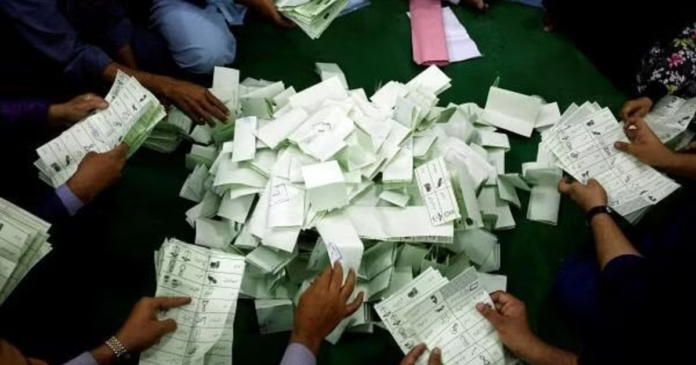An intriguing fact from Pakistan’s recent general elections indicates that the number of ballots rejected exceeded the victory margin in at least 24 National Assembly constituencies.
Due to the fact that numerous losing candidates have swamped the courts with requests to review the results, the discrepancy may lead to legal disputes.
22 constituencies in Punjab—one each in Khyber Pakhtunkhwa and Sindh province—had more votes rejected than the winning margin, according to a report in the Dawn.
Thirteen of these constituencies were won by the Pakistan Muslim League-Nawaz (PML-N), five by the Pakistan People’s Party (PPP), four by independents supported by the Pakistan Tehreek-e-Insaf (PTI), and two by other independents.
Thirteen of these constituencies were won by the Pakistan Muslim League-Nawaz (PML-N), five by the Pakistan People’s Party (PPP), four by independents supported by the Pakistan Tehreek-e-Insaf (PTI), and two by other independents.
Based on their combined numbers, the PPP and the PML-N are able to create a coalition government in the center. Nawaz Sharif, the leader of the PML-N, however, declared that all parties—aside from the PTI—should work together in the future alliance.
PTI-backed Independents won 93 of the 265 National Assembly seats, according to results released by the Election Commission of Pakistan (ECP) until Sunday. PML-N came in second with 73, PPP with 54, MQM with 17 and others with 19.
In Punjab’s NA-59 (Talagang-cum-Chakwal) district, where PML-N’s Sardar Ghulam Abbas received 141,680 votes as opposed to Muhammad Ruman Ahmad, who was sponsored by the PTI and received 129,716 votes, the most votes were rejected.
There were 11,964 votes that were rejected out of 24,547 total ballots cast.
NA-213 Umerkot (17,571 votes) came after it. NA-236 Karachi East-II has been reported to have the fewest ballots removed, at 51 ballots.
Approximately two million ballots from the 265 National Assembly constituencies have been disqualified from counting altogether.
Four constituencies have a combined total of over 15,000 ballots that were removed. Ten to fifteen thousand more votes have been deleted from 21 constituencies. A significant proportion of constituencies (137) indicated that between 5,000 and 10,000 votes were rejected.
Over 1,000 ballots were excluded, while fewer than 5,000 were reported from 67 constituencies. Less than 1,000 votes have been reported as excluded from six constituencies in total.



